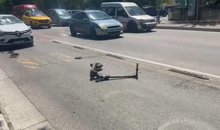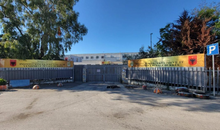
 Flash News
Flash News
Drenova prison police officer arrested for bringing drugs and illegal items into cell
Lavrov: NATO is risking self-destruction with new military budget
Kurti and Vučić "face off" tomorrow in Skopje
Construction worker dies after falling from scaffolding in Berat
The prosecution sends two Korça Municipality officials to trial

The administrative unit of Nikla in the municipality of Kruja has a complex social composition and inherited history with crime, but the experts of order and public security emphasize that it is political instrumentalization and alliances with politicians that have empowered the criminal exponents of this area. This material was prepared by journalist Klodiana Lala and is a collaboration between the BIRN Network and the Voice of America.
The streets are empty and the houses are surrounded by high walls. Dozens of security cameras are installed on the walls and concrete electricity poles, keeping a watchful eye on the slightest movement.
Only 17 kilometers from Tirana, the area of Nikla in the municipality of Kruja is otherwise known as the cradle of crime. Different clans in this area, sometimes in alliance and sometimes in rivalry with each other, extended their influence beyond Nikla, offering organized crime structures costly services such as paid murders.
Albanian law-enforcement authorities believe that these services to the underworld brought conflicts, from which originate a long series of serious criminal events - including kidnappings, armed robberies, mafia-style assassinations and murders, which have transformed the area into a bloody arena.
Among them, the murder in March 2024 of the former prison police officer, Gentjan Bejtja, who had survived three previous assassinations with firearms and explosives, stands out. In one of these assassinations in July 2023, his 29-year-old brother-in-law was killed and his two minor children were injured.
"Gentian until it happened that his children were injured, and until he was killed and the brother-in-law at the door of the house came here, I was at the hospital with the whole wife. Since that day, he has been at home here. My wife and I were in the garden, when we got here we heard the crackling. There we found him dead as he had entered the greenhouse to water," says Gani Bejtja, the victim's father.
Nikla's history as a hotbed of criminality goes back more than two decades. The former General Director of the State Police, Ahmet Prençi, remembers that this area was known as problematic from the beginning of his career in the police.
"When I started my career in 1992, that I started in Krujë, I remember that it was a very problematic area, a very hot area, they were the first exponents of the gangsters of that time," recalls Prençi.
"Initially, it started with fines, murders, and robberies, while for 30 years they have necessarily been empowered and perfected their criminal activity," he adds.
Pas vitit 1997 dhe periudhës së anarkisë që pasoi kolapsin e firmave rentiere, vrasjes së deputetit Azem Hajdari në vitin 1998 dhe Luftës në Kosovë në vitin 1999, eksponentë të krimit nga zona e Niklës u përfshinë edhe në akte sabotazhi me frymëzim politik.
Sipas Spartak Poçit, ish-ministër i Rendit Publik në vitet 1999-2000, kjo ndodhi në kushtet e një përplasjeje të vazhdueshme mes dy forcave kryesore politike që drejtonin vendin në atë kohë, Partisë Socialiste dhe asaj Demokratike.
“Kishte akte sabotazhi të tilla si rrëmbime personash, bllokime rrugësh ku do kalonin politikanë për të lëvizur për në Shqipëri dhe hedhjen në erë të shtyllave elektrike, të cilat ishin akte të mirëfillta sabotazhi me karakter politik, por dhe me tendencë për të destabilizuar në mënyrë masive rendin dhe besueshmërinë e popullsisë karshi qeverisjes,” tregon Poçi.
Megjithë ngarkesën kriminale me të cilën përballet zona e Niklës, drejtuesit aktualë të Policisë së Shtetit theksojnë që shumica e qytetarë të kësaj zone e zbatojnë ligjin dhe e respektojnë komunitetin e tyre.
“Nikla është një njësi administrative, si të gjitha njësitë e tjera administrative që ka Shqipëria. Në Nikël jetojnë qytetarë të cilët përgjithësisht e zbatojnë ligjin, zbatojnë rregullat e bashkëjetesës. Është fakt që zona e Niklës, tradicionalisht ka patur më të përhapur vetëgjyqsinë dhe në raport me njësitë administrative të tjera të vendit, krimet kundër personit në mënyrë të veçantë, kanë pasur një tendencë dhe zhvillim më të madh,” thotë Tonin Vocaj, drejtor i Policisë Kriminale.
Lidhjet politike besohet se ndikuan në fuqizimin e grupeve kriminale të zonës. Një hetim i Prokurorisë së Posaçme i bazuar në zbërthimin e aplikacionit të koduar ‘Sky ECC’, ka hedhur dritë rishtazi mbi lidhjet politike dhe fuqinë ekonomike të organizatave kriminale që operojnë në zonën e Fushë-Krujës dhe Lezhës, ku mes tyre figurojnë dhe ish-deputetë të Partisë Socialiste dhe familjarë të tyre.
“Fillimisht këta jepnin e merrnin me këta të opozitës, por ajo nuk i afroi në pozicione politike. I përdorte për vota, i përdorte për akte të sabotazhit, i përdorte për bllokim të rrugëve edhe për mitingje që bëheshin këtu në Tiranë. Më vonë, këta u lidhën me partinë që ishte në pushtet dhe natyrisht, dora-dorës filluan të kërkonin dhe poste dhe siç kam dëgjuar më vonë, disa prej tyre kanë shkuar në vendet që lamë neve në parlament,” thekson ish-ministri i Rendit, Spartak Poçi.
Lidhjet e politikës me krimin e organizuar nuk janë një problem i izoluar dhe prezent vetëm në zonën e Niklës. Ato shtrihen thellë në territorin e vendit dhe përbëjnë një sfidë të drejtpërdrejtë ndaj sundimit të ligjit dhe shtetit të së drejtës në Shqipëri.
"The main objective of organized crime today is for them to be economically powerful and they achieve this through their criminal activity, but also through their alliances that they create, especially with politics, since it gives them access to further strengthen their activity them," says the former head of the State Police, Ahmet Prençi.
According to Prenç, law enforcement institutions in the country must act quickly to sever the ties between politics and organized crime groups in the country. VOA
Latest news



Second hearing on the protected areas law, Zhupa: Unconstitutional and dangerous
2025-06-30 22:18:46



Israel-Iran conflict, Bushati: Albanians should be concerned
2025-06-30 21:32:42

Fuga: Journalism in Albania today in severe crisis
2025-06-30 21:07:11
"There is no room for panic"/ Moore: Serbia does not dare to attack Kosovo!
2025-06-30 20:49:53

Temperatures above 40 degrees, France closes nuclear plants and schools
2025-06-30 20:28:42
Lavrov: NATO is risking self-destruction with new military budget
2025-06-30 20:13:54
Turkey against the "Bektashi state" in Albania: Give up this idea!
2025-06-30 20:03:24

Accused of sexual abuse, producer Diddy awaits court decision
2025-06-30 19:40:44



Kurti and Vučić "face off" tomorrow in Skopje
2025-06-30 18:44:12
Tourism: new season, old problems
2025-06-30 18:27:23


Construction worker dies after falling from scaffolding in Berat
2025-06-30 17:51:44




Almost free housing: East Germany against depopulation
2025-06-30 16:43:06

Hamas says nearly 60 people killed in Gaza as Trump calls for ceasefire
2025-06-30 16:14:15
Drownings on beaches/ Expert Softa: Negligence and incompetence by institutions!
2025-06-30 16:00:03


European ports are overloaded due to Trump tariffs
2025-06-30 15:30:44
The prosecution sends two Korça Municipality officials to trial
2025-06-30 15:19:54

Lezha/ Police impose 3165 administrative measures, handcuff 19 drivers
2025-06-30 14:55:04
Young people leave Albania in search of a more sustainable future
2025-06-30 14:47:52
Record-breaking summer, health threats and preventive measures
2025-06-30 14:36:19


Constitution of the Parliament, Osmani invites political leaders to a meeting
2025-06-30 14:07:54

Heat wave 'invades' Europe, Spain records temperatures up to 46 degrees Celsius
2025-06-30 13:42:02
Accident in Vlora, car hits 2 tourists
2025-06-30 13:32:16

Kurti confirms participation in today's official dinner in Skopje
2025-06-30 13:03:27

Fight between 4 minors in Kosovo, one of them injured with a knife
2025-06-30 12:38:45

Report: Teenage girls the loneliest in the world
2025-06-30 12:20:40
Commissioner Kos and Balkan leaders meet in Skopje on Growth Plan
2025-06-30 12:07:59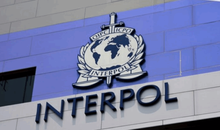
Wanted by Italy, member of a criminal organization captured in Fier
2025-06-30 11:55:53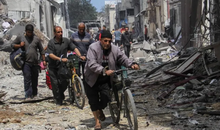
Hundreds of families displaced by wave of Israeli airstrikes in Gaza
2025-06-30 11:45:17

Zenel Beshi: The criminal who even 50 convictions won't move from Britain
2025-06-30 11:23:19
A new variant of Covid will circulate during the summer, here are the symptoms
2025-06-30 11:14:58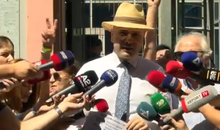
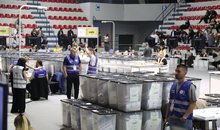
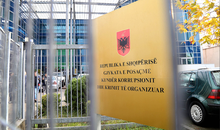
"Partizani" case, trial postponed to July 21 at the Special Court
2025-06-30 10:41:05
Uncontrolled desire to steal, what is kleptomania, why is it caused
2025-06-30 10:30:08
Requested change of security measure, hearing for Malltez postponed to July 7
2025-06-30 10:24:32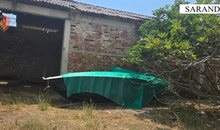
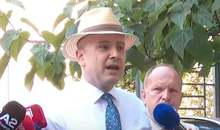

Output per working hour in Albania 35% lower than the regional average
2025-06-30 09:54:35

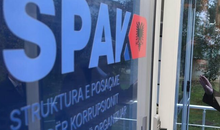
The trial for the "Partizani" file begins today
2025-06-30 09:27:57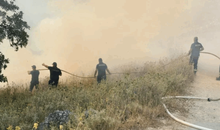
22 fires in the last 24 hours in the country, 2 still active
2025-06-30 09:21:28
How is the media controlled? The 'Rama' case and government propaganda
2025-06-30 09:13:36
German top diplomat: Putin wants Ukraine to capitulate
2025-06-30 09:00:07
Foreign exchange, how much foreign currencies are sold and bought today
2025-06-30 08:44:38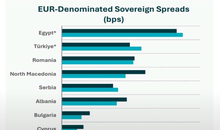
Chart/ Sovereign risk for Albania from international markets drops significantly
2025-06-30 08:26:38
Horoscope, what do the stars have in store for you?
2025-06-30 08:11:44
Clear weather and passing clouds, here is the forecast for this Monday
2025-06-30 07:59:32
Morning Post/ In 2 lines: What mattered yesterday in Albania
2025-06-30 07:47:37
Milan make official two departures in attack
2025-06-29 21:57:23
6 record tone
2025-06-29 21:30:46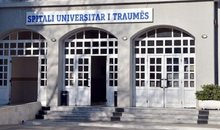
4-year-old girl falls from balcony in Lezha, urgently taken to Trauma
2025-06-29 21:09:58


Assets worth 12 million euros seized from cocaine trafficking organization
2025-06-29 19:39:43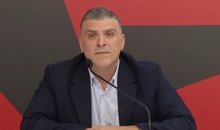
Fire in Durrës, Blushi: The state exists only on paper
2025-06-29 19:17:48
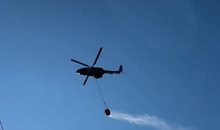
Fire endangers homes in Vlora, helicopter intervention begins
2025-06-29 18:27:51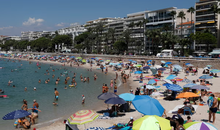
France implements smoking ban on beaches and parks
2025-06-29 18:02:08
England U-21 beat Germany to become European champions
2025-06-29 17:42:49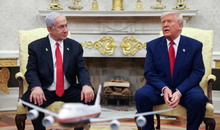
Trump criticizes Israeli prosecutors over Netanyahu's corruption trial
2025-06-29 17:08:10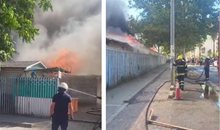
Street market in Durrës engulfed in flames
2025-06-29 16:52:57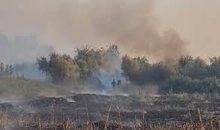
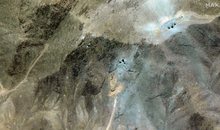
UN nuclear chief: Iran could resume uranium enrichment within months
2025-06-29 16:03:24
Albanian man dies after falling from cliff while climbing mountain in Italy
2025-06-29 15:52:01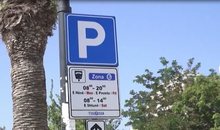
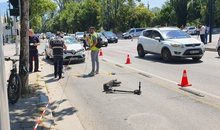
Another accident with a single-track vehicle in Tirana, a car hits a 17-year-old
2025-06-29 15:07:15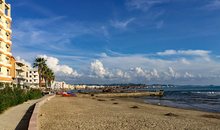
While bathing in the sea, a vacationer in Durrës dies
2025-06-29 14:54:01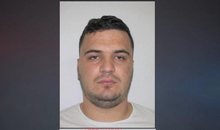
Sentenced to life imprisonment, cell phone found in Laert Haxhiu's cell
2025-06-29 14:26:40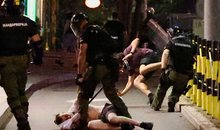
77 people detained in protest, Vučić warns of new arrests
2025-06-29 14:07:46